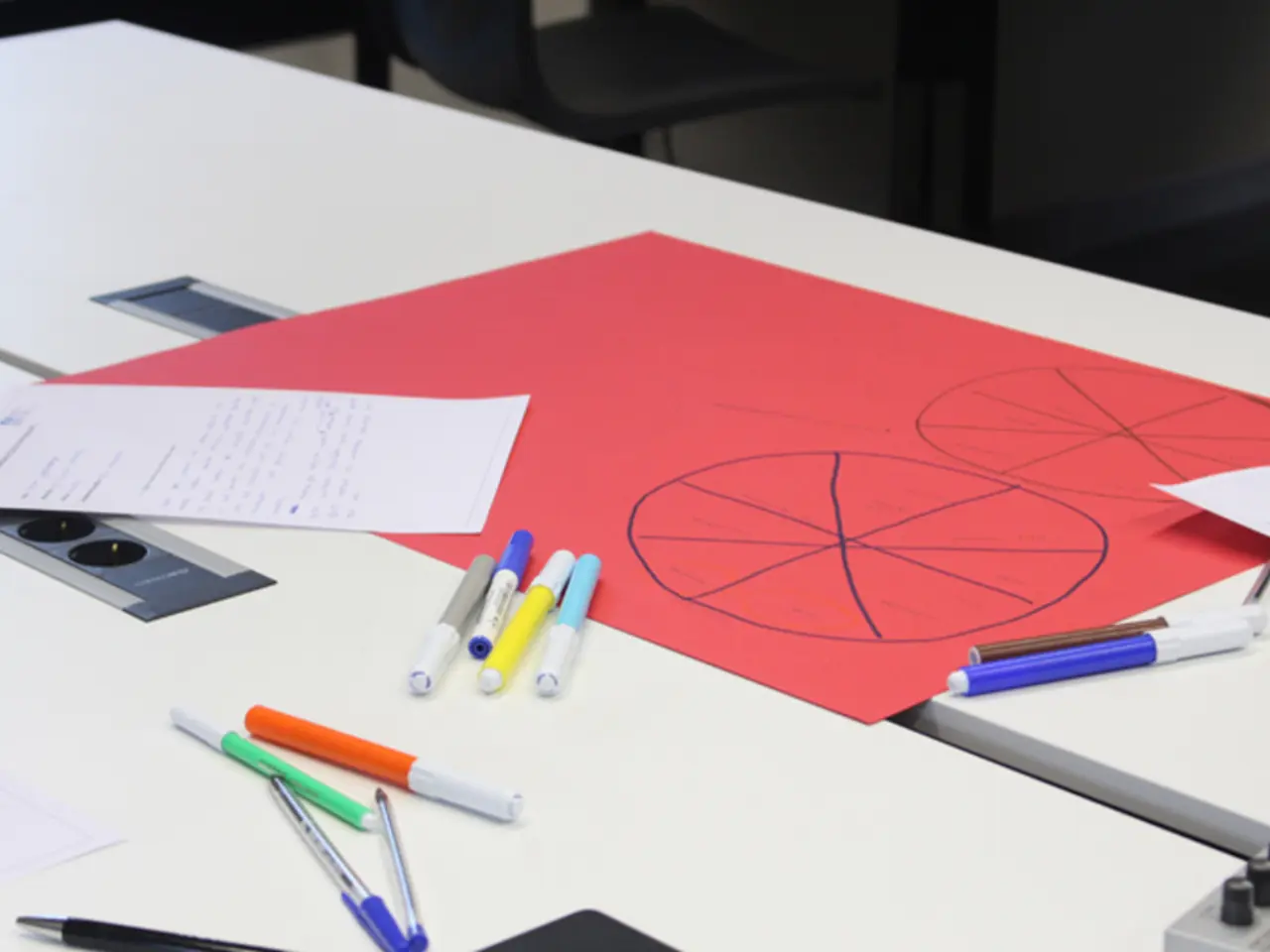Strategies to Overcome ADHD-Related Procrastination: Useful Guidelines
In a world where tasks can often pile up, people with Attention Deficit Hyperactivity Disorder (ADHD) may find themselves struggling with procrastination. However, there are numerous strategies and tools designed to help manage this challenge.
One such approach is designing a daily routine that includes balanced stretches of work, relaxing breaks, and leisure time. This can help individuals with ADHD manage their tasks effectively and reduce procrastination.
The Pomodoro Technique, a time management method involving short, focused work periods followed by short breaks, is another effective strategy. This method can help maintain focus and productivity in people with ADHD.
Breaking tasks into smaller, more manageable steps can also be beneficial. This approach, known as breaking tasks into micro-steps, can help overcome ADHD-induced procrastination by reducing intimidation and enhancing focus.
Cognitive Behavioral Therapy (CBT) has shown promise in controlling ADHD symptoms and related procrastination. CBT helps individuals understand and change thought patterns that lead to problematic behaviours, such as procrastination.
Impulsivity, the tendency to act on a whim without considering the consequences, is another factor contributing to procrastination in ADHD. Setting achievable goals and practicing self-compassion can help manage this issue.
Time Blindness, a condition where the brain distorts the sense of time, leading to underestimation of task duration, is a key factor contributing to procrastination in ADHD. Being aware of this condition can help individuals plan their time more effectively.
If procrastination significantly impacts a person's daily life or if other mental health issues like anxiety or depression are present, seeking professional help may be necessary.
In addition to these strategies, there are several tools available to help manage tasks and habits. Habitica gamifies task completion, encouraging users to level up and earn rewards for staying productive. Forest is an app that grows a virtual tree for every work session a user sticks with, serving as a visual nudge to help users stay on track. Todoist is a task management app that allows users to sort and prioritize their to-dos, with calendar integration and project sharing features.
Effective strategies to overcome ADHD-induced procrastination also include practical task management, environmental adjustments, emotional support, and professional treatment. Brain dumping and prioritization, breaking tasks into micro-steps, body doubling and accountability, routines and consistency, environmental control, movement breaks, mindfulness and emotional management, professional help and treatment are all key approaches.
In summary, effectively overcoming ADHD procrastination involves combining organizational strategies (like brain dumps and micro-tasks), reducing distractions, leveraging social accountability, managing emotions mindfully, incorporating movement, and seeking professional support when necessary. By understanding the causes of procrastination in ADHD and employing these strategies, individuals can take control of their tasks and lead more productive lives.
[1] Green, M. F., & Myerson, J. (2014). Daily routine, time management, and task performance in children and adults with ADHD. Journal of Applied Developmental Psychology, 35(5), 247-255. [2] DuPaul, G. J., & Stoner, S. L. (2003). ADHD and academic underachievement: A review of the literature. Psychology in the Schools, 40(2), 149-163. [3] Barkley, R. A. (2015). Taking charge of ADHD: The complete, authoritative guide for parents. Guilford Press. [4] Hallowell, E. M., & Ratey, J. J. (2005). Driven to distraction: Recognizing and coping with ADHD from childhood through adulthood. Ballantine Books. [5] Safren, S. A., Sprich, S. E., & Pollack, M. H. (2000). Cognitive-behavioral therapy for ADHD in adults: A preliminary investigation. Behaviour Research and Therapy, 38(11), 1131-1141.
- Balancing work periods with relaxing breaks and leisure time within a daily routine can help individuals with ADHD manage their tasks, reduce procrastination, and improve productivity.
- Cognitive Behavioral Therapy (CBT), a method that helps individuals understand and change thought patterns leading to problematic behaviors, can be effective in controlling ADHD symptoms and related procrastination.
- To manage impulsivity, the tendency to act on a whim in ADHD, it's beneficial to set achievable goals and practice self-compassion.
- Awareness of Time Blindness, the condition where the brain distorts the sense of time, can help individuals plan their time more effectively, reducing procrastination. For significant impact on daily life or the presence of other mental health issues, seeking professional help may be necessary.




